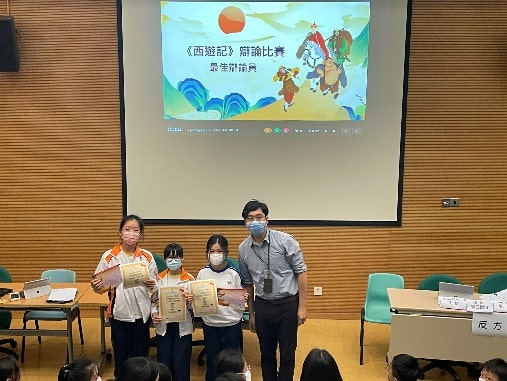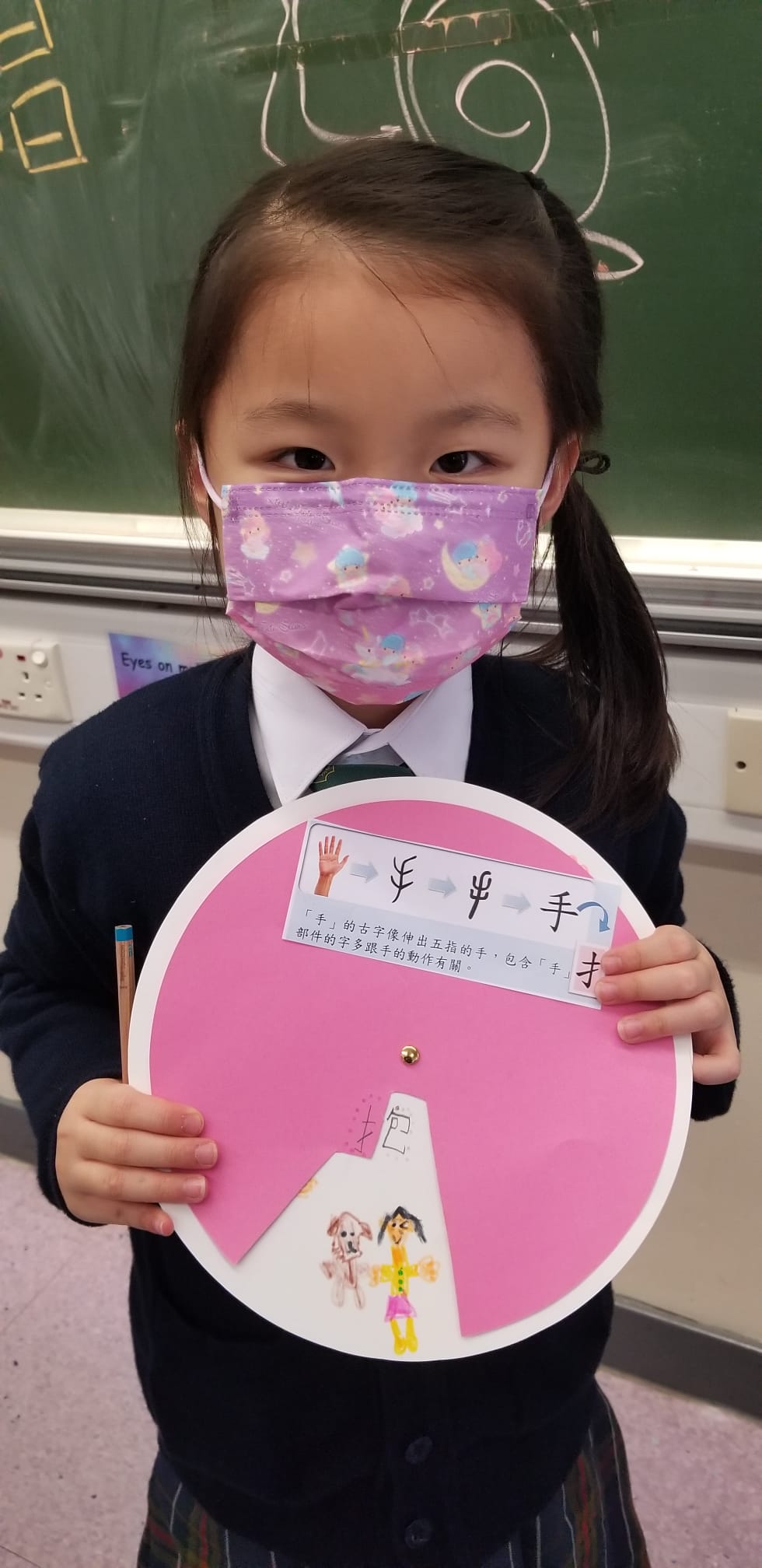
發展目標
- 均衡發展讀寫聽說能力,全面發展讀寫聽說的綜合語文能力。
- 培養審美能力和審美情趣,加強中國文學元素。
- 加強品德情意教育、文化學習,培養對中華文化的認識、反思和認同。
- 培養思維能力和素質,鼓勵獨立、批判性思考,發揮創意。
- 提高閱讀興趣,拓寬閱讀面,增加閱讀量,積累知識和語言材料,拓展視野和胸襟。
- 配合社會和學生需要,編選多樣化的學習材料,靈活運用學習材料。
學習活動目標
- 提高閱讀興趣——通過小學的「DearLand」、「篇積智慧」、「DEAR學習獎勵計劃」及「悦讀之旅」閱讀獎勵計劃,鼓勵學生養成恆常的閱讀習慣,並透過既多元又有趣的閱讀活動以增加閱讀深度。至於課堂的文本教學,則教授閱讀策略,讓學生品味文字、助其積累知識和語言材料。恆常的閱讀推介和閱讀分享活動,亦有助提高學生的閱讀興趣。
- 培養品德情意——小一、小二級誦讀《弟子規》,讓學生從小透過文學經典的薰陶,培養良好的品格,並藉著朗讀及背誦經典著作,逐步建立語文基礎。小學文本教學兼顧思想、品德的培育和文化的薰陶,以推行價值觀教育,培養學生對中華文化的認識與反恩。
- 重視文學經典——小學各級均編選含豐富文學元素、文化內涵的經典名篇,如安排學生閱讀《弟子規》、唐詩、《水滸傳》、《三國演義》和《西遊記》,以積澱語感,提高語文素養。
- 提供綜合訓練 一 整個小學學習過程,均以聽說讀寫為主導,輔以綜合運用,為學生提供均衡的語文學習經歷,豐富的實踐機會,藉以提高學生綜合運用語文的能力和發展共通能力。


Development Goals
- To develop a balance of skills and integrated abilities in reading, writing, listening and speaking;
- To cultivate students’ aesthetic sense and appreciation, and to increase the elements of Chinese Literature;
- To enhance moral and value education, and to cultivate students’ knowledge and judgement through learning about Chinese culture;
- To develop students’ ability and improve their quality in thinking skills, and to encourage the development of their independent, critical and creative thinking skills;
- To arouse students’ interest in reading, so that they read more extensively, with wider range and in larger quantity, to increase their knowledge and vocabulary, and to widen their horizons and breadth of mind; and
- To meet the needs of society and students by developing diversified learning materials, and using them flexibly.
Learning Activities
- Arousing students’ interest in reading: Our primary school’s “DearLand”, “Read to Succeed”, “DEAR Scheme” and “Reading Journey” encourage students to develop a regular reading habit, and deepen the depth of which through diversified, intriguing reading activities. As for regular lessons, teachers will teach reading strategies for students to appreciate the text and build knowledge and vocabulary. Students’ interest in reading can also be aroused through book recommendations and sharing sessions.
- Enhancing moral and value: P1 and P2 students will recite the Chinese classic, Di Zi Gui, so that they can develop a good character through the influence of literary classics, and gradually build a solid language foundation. Primary education values the cultivation of thought, morality and influence of culture for the promotion of value education to cultivate students’ knowledge and judgement towards Chinese culture.
- Learning through literary classics: Chinese classics are taught at all levels of the primary school, such as Di Zi Gui, poems in the Tang Dynasty, Water Margin (Shuihu zhuan), Romance of the Three Kingdoms (Sanguo Yanyi) and Journey to the West (Xi You Ji), for the accumulation of language sense and Chinese accomplishment.
- Providing integrated training: Listening, speaking, reading and writing, supplemented by integrative use, are the main focuses throughout the primary stage. It provides students with balanced language learning experiences and opportunities to apply the knowledge, with a view to enhancing their language use and generic skills.






